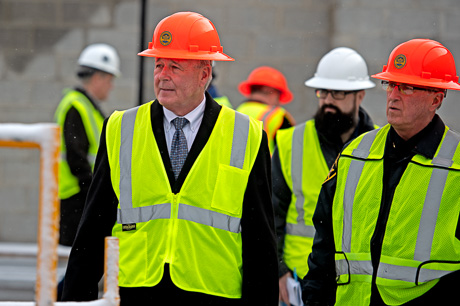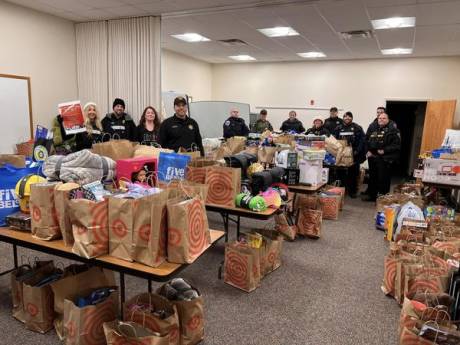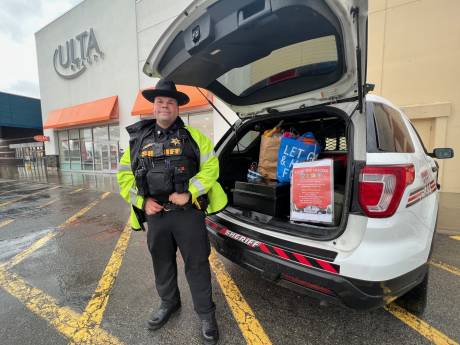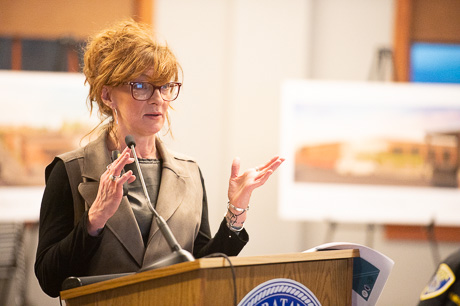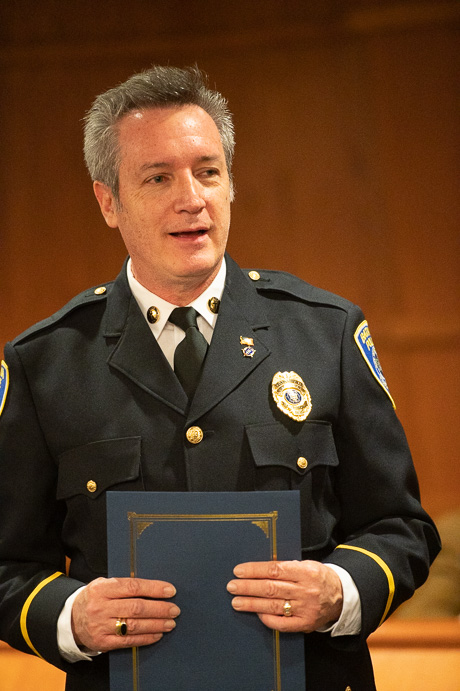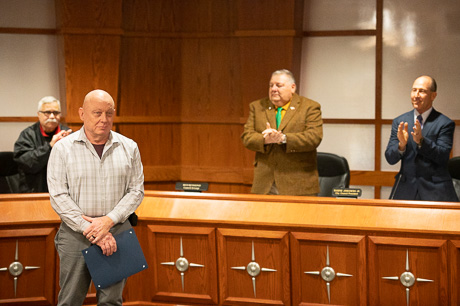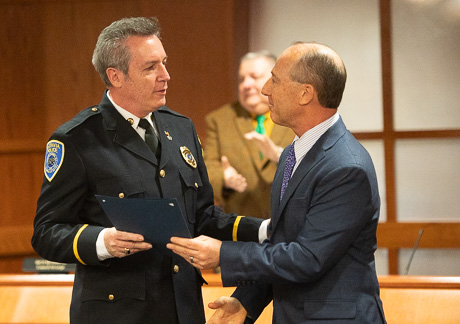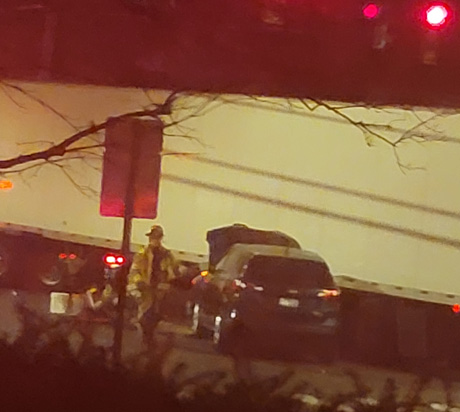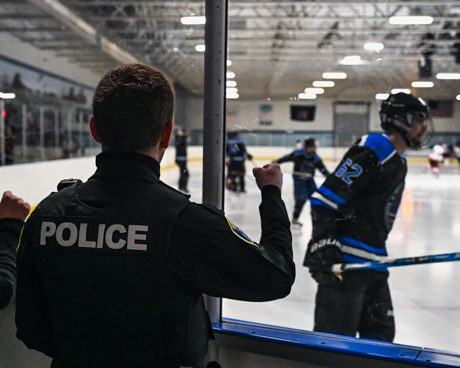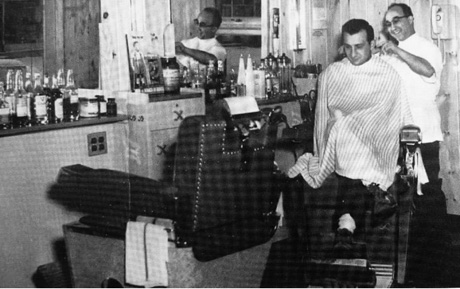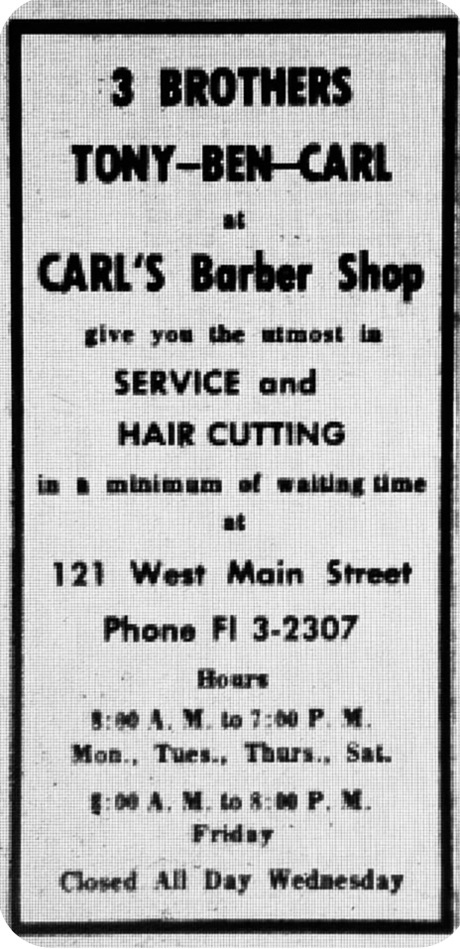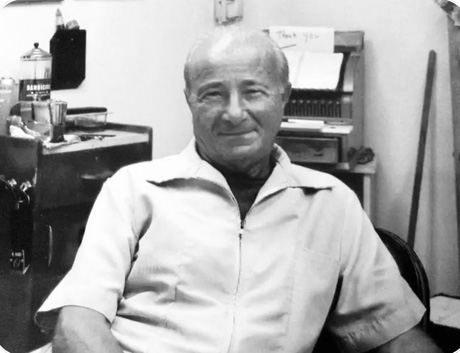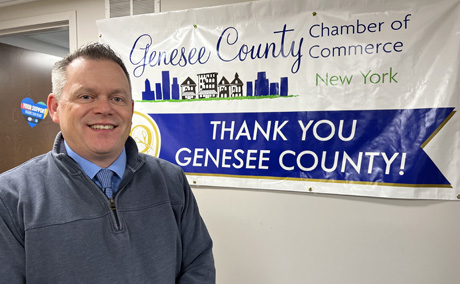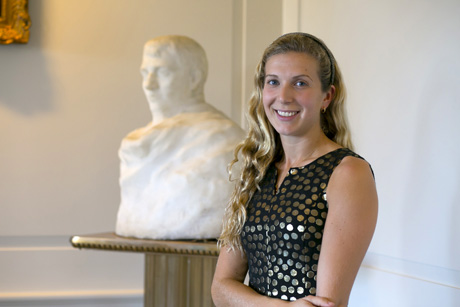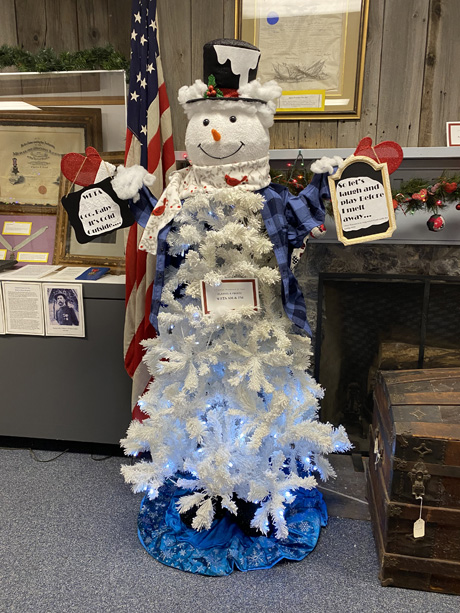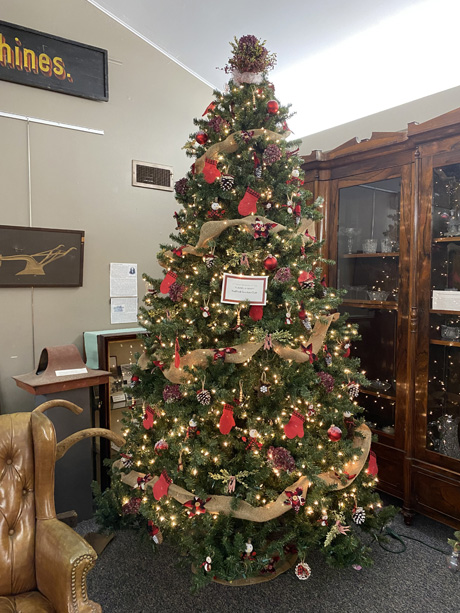Fifty or sixty years ago, in small cities like Batavia, barbershops were one of the hubs of the community. Every man and boy (unless their wife, mom or aunt was a hairdresser) generally went to the barber at least once a month and sometimes more often. But the barbershop was more than a business. It was a gathering place for the males of the community, just as the hairdresser was for the females.
The barber was often, in addition to a haircutter, a person to tell your troubles to if you'd rather not use a bartender. Men gathered in the shop would talk politics, (especially the local kind), sports, or fishing and hunting. Today you will be more likely to witness that in a diner or coffee shop where groups of usually older retired gentlemen will sit around a table with their cup of joe complaining about “ how the world has gone to hell in a handbasket.” In his later years, my dad and his cronies called it the “ coffee klatch,” and their main forum was Sport Of Kings Restaurant.
Dave at age 7, Brylcream style and, Dave age 11, Butch wax style.
If you were a kid in the 1950s, there were really only 2 choices of haircut you could have – the regular trimmed on the sides and combed neatly on the top kind or a crew cut (today called a buzz cut). There were no mohawks, mullets, or, god forbid, long hair. I had both at various times, and each required a different kind of care.
For the regular cut, you'd add some Brylcream ( “A Little Dab'll Do Ya”) to keep your hair in place. Many crewcuts like mine would leave some raised hair in the very front. That's where “Butch Wax” was utilized. You would add the gooey wax to the front and then comb it upward. In the winter, if you walked to school, the wax might freeze, so you looked like you had brown, red, or blonde chia grass on the front of your head. Then when it melted, it smelled like bubble gum as it oozed down your forehead.
When you got to be a teenager, a third possibility became available, but only if you wanted to be considered a “hood” or “greaser” or Elvis wannabe. This was the ducktail or D.A. (duck's “rear end”). The type of guy who had this hairdo might be seen with a leather jacket, white T-shirt with a rolled-up sleeve bulging a pack of Lucky Strike smokes and, if he was way cool, driving a '57 Chevy.
We Reilly kids went to Mr. (Warren) Parker to get our haircuts. He was located upstairs at 114 Main St. near The Dagwood Restaurant. There were closer barbers to where we lived, but I think we went there because our dad did. I remember that when we were little, he had a booster seat to put in his chair to raise us up high enough (I'd guess all barbers had something similar). As we got a little older, the main attraction was his supply of comic books. I recall that he kept them in a drawer, and you had to ask for them -- probably to prevent their disappearance.
I was never a fan of the Action Comics “superhero” genre. I was more of a Donald Duck/Scrooge McDuck, Popeye, Bugs Bunny kind of kid. Since this was recently post-World War II, my favorites were “ army” comics, of which I had a huge collection at home. Like some other things I “lost” over the years, I wish I would have kept them as they would be worth some decent money today.
I'm pretty sure Mr. Parker, like most barbers back then, had another drawer for certain of their men customers, which contained “Playboy” and other risque adult magazines of that type. That collection was off-limits to kids, though.
As proof of the importance of the local barbershops of that time, Batavia in 1960 had a population of about 18,000 people. At any given time there were probably about 20 to 25 shops in town. Some operated solo, while others had 2 or 3 chairs, “no waiting,” they advertised.
Haircut prices at that time were usually in the $1.50 to $2.00 range, with an extra charge for a shave. My brother tells a story that when he was about 10, he sneaked into a barber who was cheaper because he wanted the extra money for something. But the barber buzzed him with a crew cut that my mom didn't want him to get. So, he got in trouble besides being scalped.
My barber Warren Parker's brother John (called “Shorty”) had a shop on West Main Street near the corner of North Lyon next to Ann's Paints.
The 3 Meleca brothers, Carl, Tony, and Benny, had a shop also on West Main between Walnut Street and The Holland Land Office Museum. This was an iconic section that backed up to the Tonawanda Creek and also contained Sloat's Tires (where they changed your tires right in the street), Grentzinger's Hardware, and Vi's Restaurant. Customers reported that the Meleca brothers would fish in the creek out of their back window. Carl later moved his shop to the corner of Main and Oak and also owned a bar called The Drinkery there. He worked in his shop until he was 89.
Ben Meleca was hired as a chemistry teacher at Notre Dame High. He was my teacher the second time I took the subject (I was more of a language/history student than math and science. I actually had to take geometry three times! Good thing I taught elementary school my whole career). Ben went on to become a professor at Ohio State University.
Carl Meleca
Another popular barber, Ray Fisher or “Stub,” was on East Main by Pontillo's Pizza. He was an avid fly fisher and used to tie his own flies right in the shop between customers.
Also on East Main was Tom Varco, who in addition to cutting hair, apparently had quite a repertoire of off-color jokes for the men.
On the North side of Main Street, up above Thomas and Dwyer Shoes, was Tony Mancuso. He also had a shop by the bus station.`
Bill Cecere was another north side of Main Street guy. Kids loved going to him because he'd give out a pack of Juicy Fruit gum with every haircut. He also stocked Mad magazines for your reading enjoyment.
Over on Oak Street was Charlie Puccio and Louie Fanara was on Ellicott Street by the Pok-A-Dot Restaurant (still there today) and across from Ange's Italian Restaurant.
Jack Burling was on State Street and later on East Main by The Miss Batavia Diner (also still there). Reportedly he was cutting hair into his 90s.
Joe Deni was on Ross Street by the Richmond Library. Kids would go get books and then get their hair cut or vice versa.
Chuck Wood had a shop on the corner of Bank Street and Washington Avenue above a TV repair store (those don't exist anymore). Dads could drop off the television for some new tubes and then get a haircut.
So, if the barbershops were so useful, popular, and necessary, why are there so few remaining, not just in Batavia but everywhere? Well, you could blame it on The Beatles, for one. In the early 1960s, when The Fab Four took the world by storm with their longish Beatle Cut hairdos, many boys (to the dismay of their parents) jumped on the long hair bandwagon. Then when the “Hippie” culture spread out from San Francisco, and long hair became synonymous with the Vietnam War protests, it was the beginning of a decline for the barbers.
As we progressed into the 1970s and the rise of “Disco,” it was no longer considered a stigma for men and boys to get their hair cut by a “stylist,” particularly female ones.
Today rather than the old-fashioned barbershops, there are “Hair Zoos,” “Super Cuts,” “Sport Clips,” “Fantastic Sams,” and many other similar franchises literally on every corner or in every mall where men or women can get their hair needs taken care of.
There are still a few barbers in Batavia, such as Canzoneri's and Royals on Ellicott Street and My Cut on East Main. All are throwbacks to days gone by. They will not disappear like Photomat, Blockbuster, or Borders Books because men will always need their hair cut. But, it doesn't seem that in today's fast-paced world where people are always in a rush that, the barbershop will ever regain its place as a de facto clubhouse for the men and boys of the town. That might be the unkindest cut of all to barbers.
Author's note: Thank you to all who responded to my inquiry on Memories Of Batavia and provided me with recollections of Batavia barbers which made some of this story possible. I apologize for some that I omitted.
Photos provided by David Reilly. Top photo: Louis Fanara cutting hair in his shop by The Pok-A-Dot.





